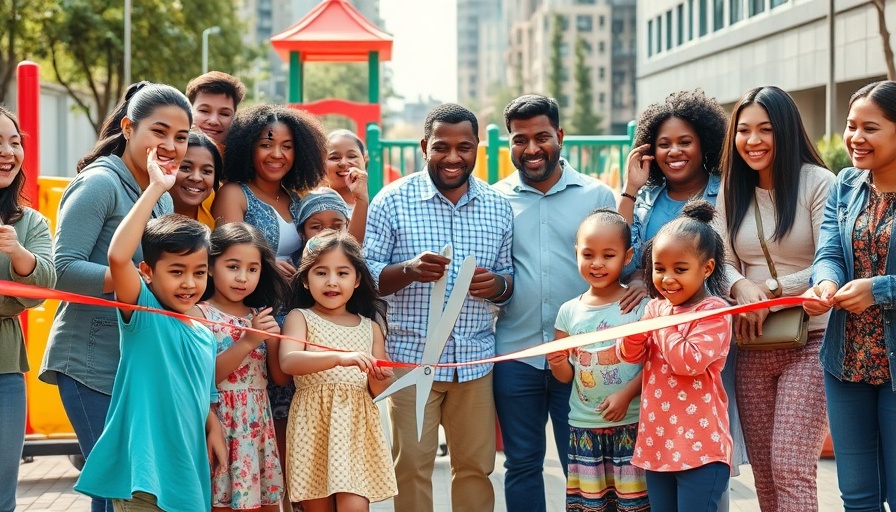
Security Upsurge Creates Unease as Schools Reopen
As public schools in Washington, D.C., reopened on August 25, 2025, anxiety hung in the air for many parents amidst an unprecedented presence of armed National Guard troops and federal law enforcement. Mayor Muriel Bowser emphasized her concern during a recent press conference, highlighting fears that these security measures might ultimately hinder children's emotional and psychological well-being as they return to their classrooms.
Trump's Directive Heightens Parental Anxiety
In a bid to tackle crime in the nation’s capital, President Donald Trump issued orders that led to the deployment of thousands of armed National Guard members to the streets of D.C. Parents are feeling the pressure, fearing that the heightened security could lead to over-policing in their communities. Rumors circulated through social media about potential police checkpoints and arrests, overwhelming many families with uncertainties as the school year commenced. "Parents are anxious. We've heard from a lot of them," Mayor Bowser noted, indicating that this distress might even lead some to reconsider sending their children back to school.
Community Response and the Impacts on Children
The emotional toll on children is a significant concern echoed by local community stakeholders. The presence of armed troops represents not just a physical barrier to safety, but an emotional one that could hinder the sense of security that children need for healthy development. “Any attempt to target children is heartless,” Mayor Bowser stated, arguing that the consequences of such militarized policing could lead to long-term psychological effects.
The Broader Context of National Security Policies
This situation in Washington is not just a localized problem but part of a larger national conversation regarding public safety and policing strategies. Critics argue that the militarization of police and military forces in civilian spaces can lead to an erosion of community trust and exacerbate tensions, particularly in socioeconomically vulnerable areas.
What Does This Mean for Parents and Communities?
As schools reopen, parents are tasked with navigating a complex emotional landscape while trying to ensure their children’s safety. Many are left questioning the effectiveness of such security measures and whether they truly contribute to a safer environment or create a culture of fear. The focus now shifts to fostering dialogues around community safety that include voices from local neighborhoods to build trust and accountability.
Next Steps for Engaged Citizens
What can parents and community members do in light of these developments? It is crucial for families to stay informed about the discussions around public safety policies and advocate for children's mental health resources as schools adjust to this new security landscape. By engaging with local representatives and participating in community forums, parents can help shape policies that prioritize children's well-being while maintaining public safety.
In a climate where schools are seen as safe havens, the push for comprehensive measures to de-escalate fears surrounding increased police presence becomes essential. Finding a balance between security and community trust is necessary as families strive for stability amidst the changing tides of public policy.
Call to Action: Stay Informed and Engaged
Parents, educators, and community members are encouraged to actively engage in discussions about the implications of armed security in schools. Attend local town halls, share your perspectives on social media, and connect with community organizations advocating for balanced security measures. Participation is key to ensuring our children can learn and thrive.
 Add Row
Add Row  Add
Add 




Write A Comment